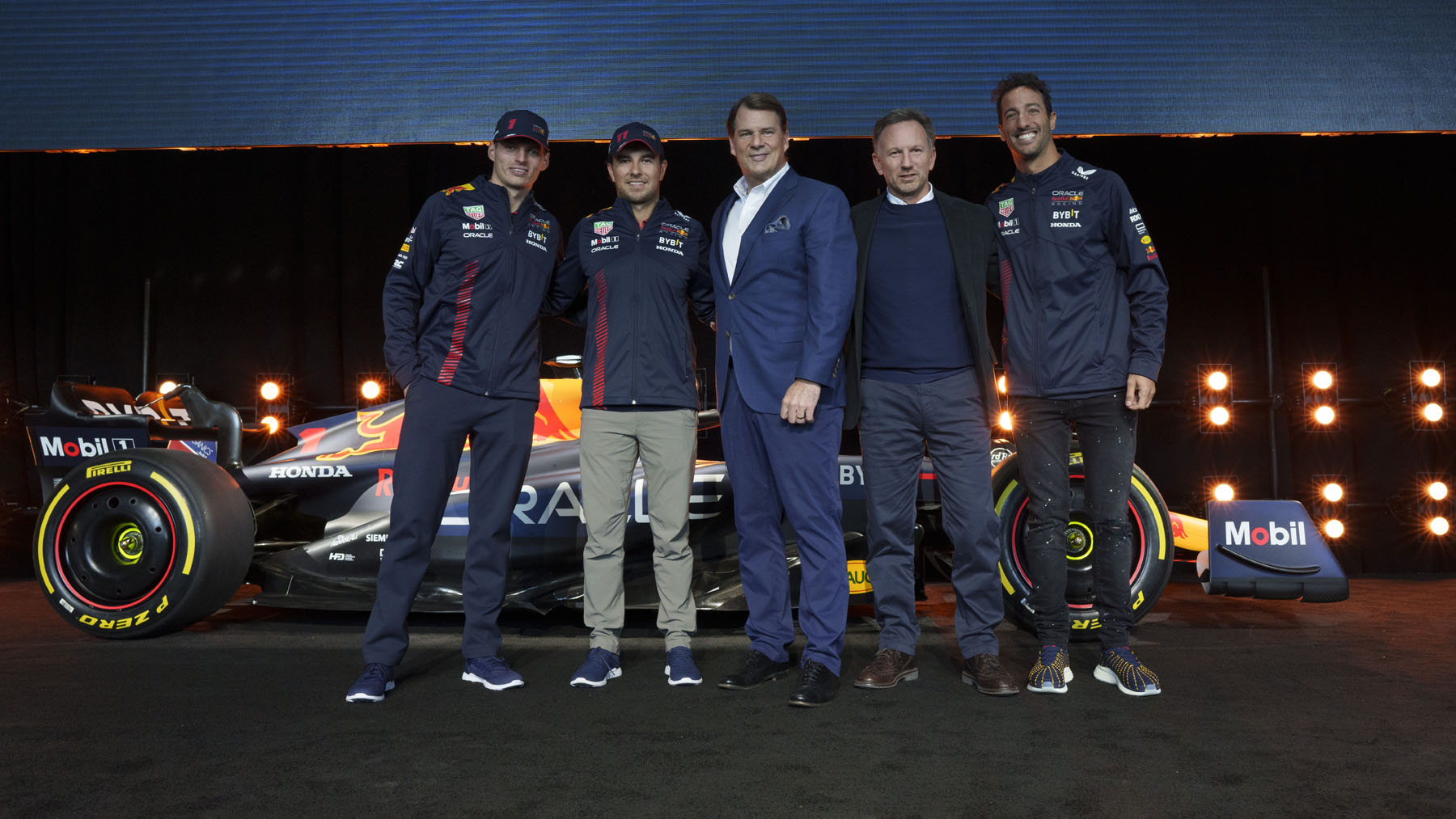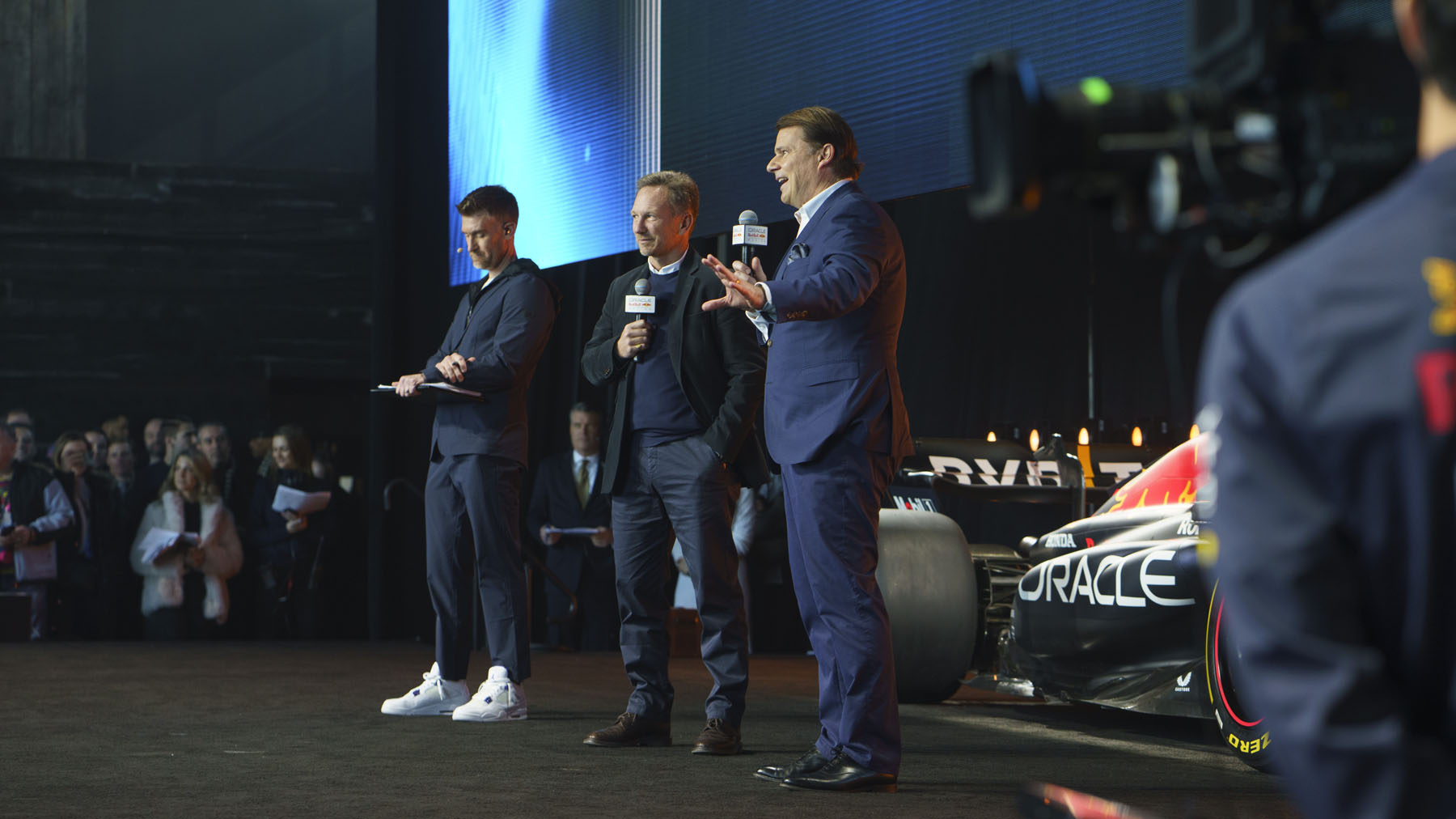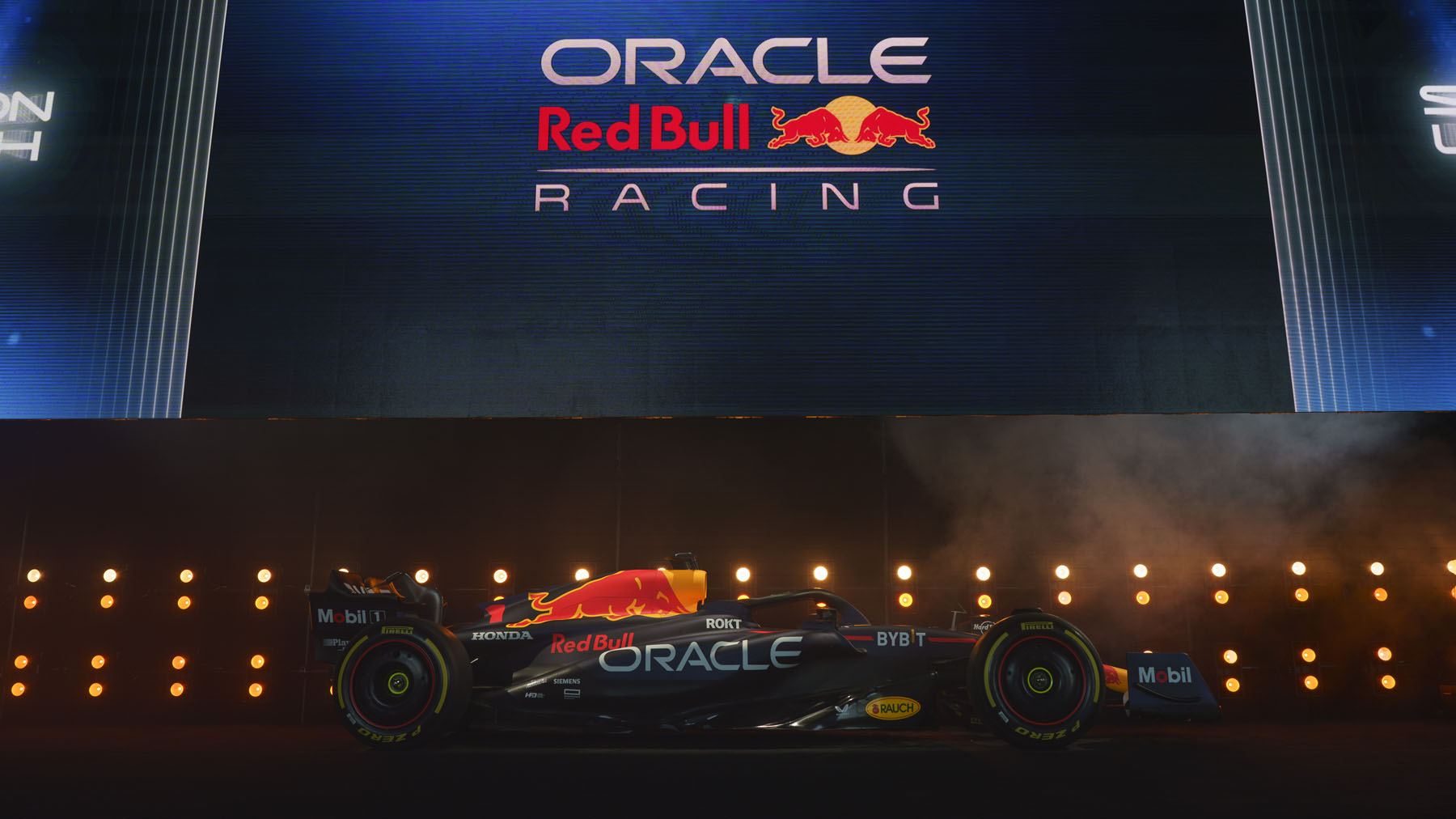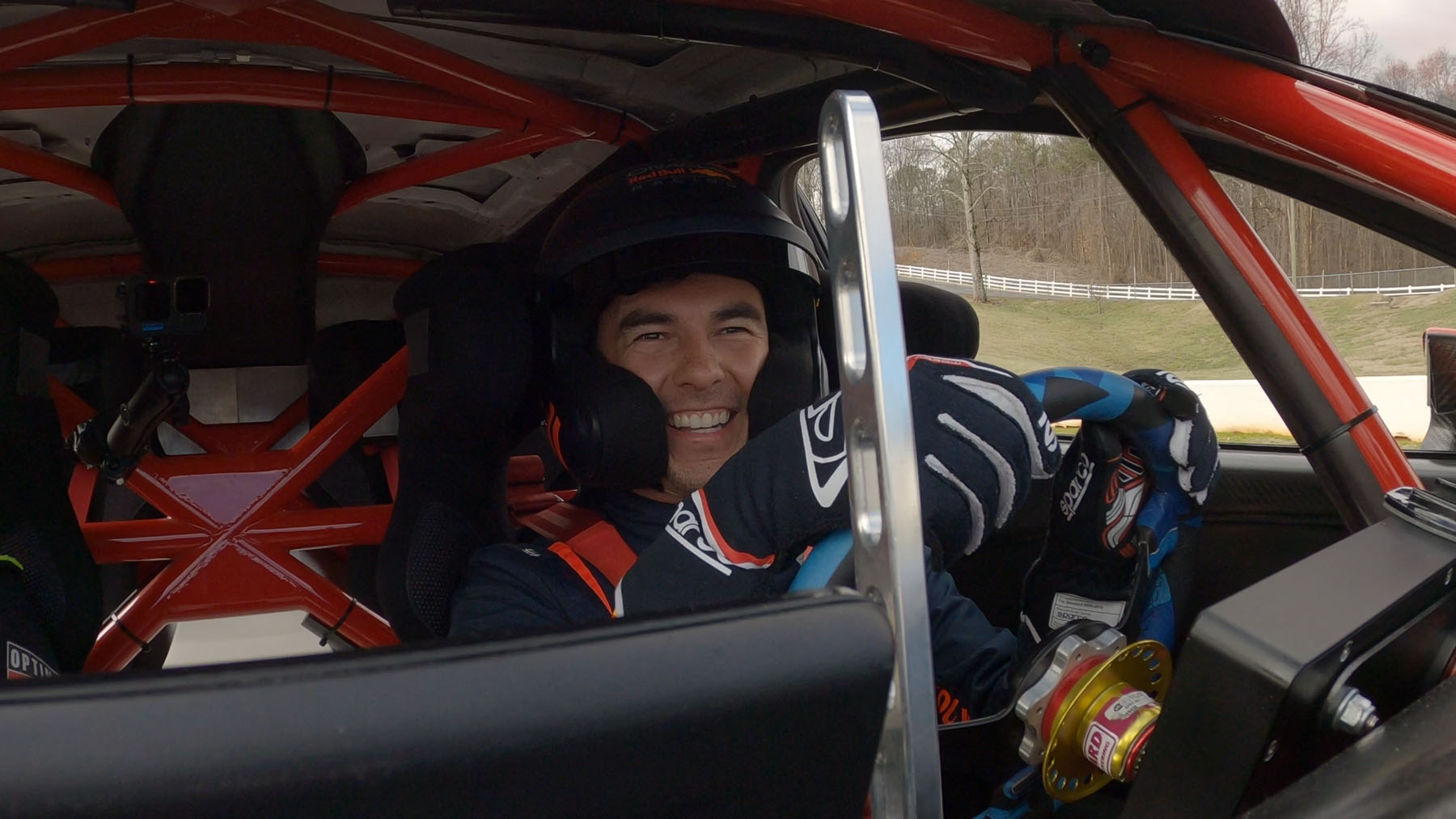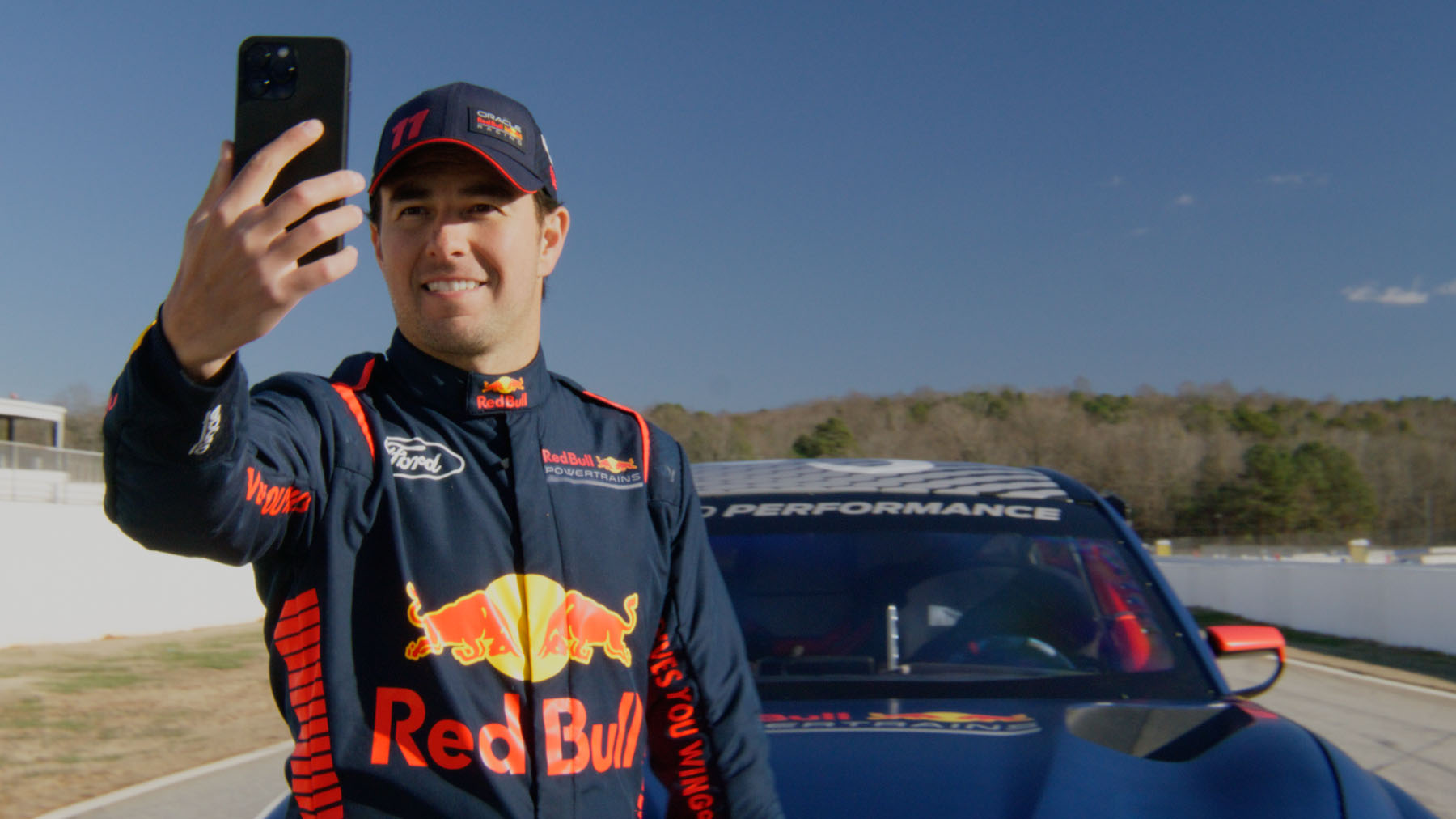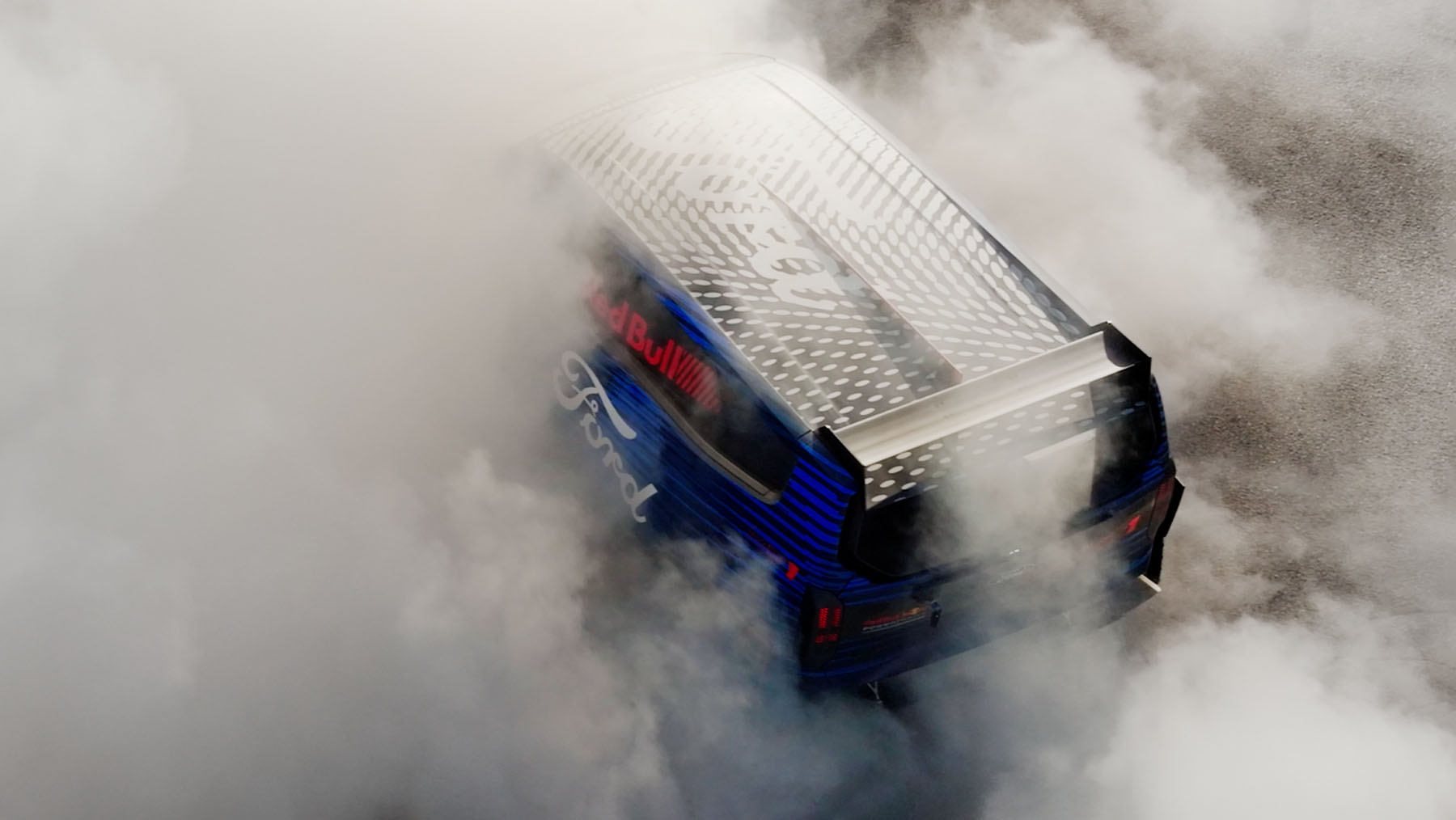
Here's why Ford has returned to Formula One with Red Bull Racing
At a glitzy New York launch, TG interviewed the key people involved in the Blue Oval's return to Formula One
So, Ford is returning to Formula One. In the midst of all the influencers and the bright-eyed new generation Netflix Formula One fans who thronged Friday’s dual Red Bull Racing launch and Ford announcement in New York, there were likely a handful of people old enough to remember the company’s last two adventures in the sport. Never mind the 155 Grand Prix wins, 12 drivers’ titles and 10 constructors’ championships the Ford-Cosworth DFV racked up between 1967 and 1983.
I’m not that old. But I was at the launch of Stewart Grand Prix, back in 1997, when Sir Jackie Stewart persuaded the Blue Oval to back his new team. Rubens Barrichello finished second in the Monaco GP that year, and Johnny Herbert would score the solitary win for the team at the European GP at the Nürburgring in 1999. But after just three seasons, Sir Jackie sold the operation to Ford for a rumoured £65m. One of his better deals in a career that’s not been short of them.
Ford then rebranded it as Jaguar F1, in an effort to boost its profile in those heady, cash-rich PAG days. I was at that launch too, at the MCC cricket club if I remember rightly, in 2000. Niki Lauda oversaw Jaguar F1 for a while, and hired Guenther Steiner as managing director. I interviewed both at the time, and they were… tetchy, positivity evidently in scarce supply. Ford’s patience soon ran out and it sold the team to Red Bull in November 2004 – yes, I was at that press conference too – and, well, we know what came next. Race wins and championships aplenty, and the emergence of perhaps the pre-eminent F1 team of the 21st century, alongside Mercedes-AMG. Now the wheel has come – almost – full circle.
"F1 used to be such a beautiful thing. Now look at it… and as for these three races in the US, c’mon!" a friend and former industry insider messaged me as Ford CEO Jim Farley joined Red Bull Racing’s CEO Christian Horner onstage, alongside Max Verstappen, Sergio Perez and the team’s returning prodigal son, Daniel Ricciardo. (Though not F1 supremo Stefano Domenicali who decided at the precise moment he was called on stage that the optics weren’t quite right after all.) Is it worth elbowing the inevitable cynicism to one side and embracing the news?
It’s certainly an intriguing turn of events. I know the guy at Liberty Media who gave the green light to Netflix’s Drive To Survive, and remember discussing it with him at the Abu Dhabi GP back in 2018. Sounded good to me. I hope he had a good bonus package because it has utterly transformed F1’s profile, particularly in the US. Liberty is an American media behemoth, and breaking the US is the Holy Grail. Job done. Bringing perhaps the best-known American brand of them all, and certainly the biggest automotive one, back into F1 is a huge deal for everyone.
As my phone continued to vibrate with, erm, glass half-empty prognostications, the reality on the ground felt different, although the time-frame intrigued me. Red Bull got very close to a deal with Porsche last year, but apparently that all went south because Porsche wanted equity, a big say in all future development, and perhaps even to replace Christian Horner with one of their own. That was last August, so either Horner had one hell of a Plan B or things really do move fast in F1.
Having established its Powertrain division at its expanding Milton Keynes base, and presumably learnt a lot from its relationship with Honda, Red Bull doesn’t need Ford to conjure up a whole new engine. No, it needs help with the 350kW electric motor and the associated software that’s core to the 2026 technical regulations. Ford has world-class knowledge there. And Ford? It gets to put the famous logo on a likely championship-winning F1 car, in an era when sustainable fuels and the push to carbon neutrality aligns with its own goals. Plus, all the competencies Red Bull has developed in F1. Here’s what Ford’s CEO Jim Farley told me.
"The most important thing is how we get the tech transfer. Here’s why it started to click for me. When we started getting serious about EVs around three years ago, we realised that aero was going to be the most important differentiator in the physical product. The battery is so heavy and so expensive that anyone who comes up with the best aero will make that battery smaller which means lower cost and greater affordability. Anyone can make an EV. But if you want to make money on it, you better minimise the size of that battery. To do that you need better aerodynamics than anyone else.
"So we had to recruit, and where do we get the best aero people? In Formula One. So I had to get these guys anyway to win in our production car business. Christian and the others need, from 2026, to have the best energy density in the batteries, the best control software for that battery cell. And we’ve got really good at that stuff because of the R&D and investment we’ve been making. In the end it was, ‘you need this, I need that… let’s make it work'.’’
Top Gear
Newsletter
Thank you for subscribing to our newsletter. Look out for your regular round-up of news, reviews and offers in your inbox.
Get all the latest news, reviews and exclusives, direct to your inbox.
Farley, who’s an accomplished racer in his own right and campaigns an original GT40, acknowledges that F1’s booming profile in the US was a helpful factor.
"We make 5m cars per year, and we’re adding 2m units. Even in the Twenties Ford never grew like it’s going to grow in the next few years. I have a lot of EVs to sell. Who’s a better advocate? A Max, Checo or Daniel, or a Hollywood star I hire?"
He continues: "There are risks in motorsport. But this is our industry’s sport. If we made athletic shoes we’d be on the pitch. Whether it’s telemetry, software, aerodynamics, or managing a battery, there’s never been a better time for the technology transfer back and forth. But it has nothing to do with combustion. You’re not going to create a great EV business if you don’t invest. Bill and I want to do this at a time when the sport is going green, we want the advocates to be knowledgeable people, and most of all we want to be with a winning culture."
Nobody in New York will disclose how much the deal is worth, but I understand it’s very cost-effective. Ford is not on a free-spending ego trip, and has got what it wanted without having to fork out for an entire team. "That’s not interesting for us. We don’t have an awareness problem at Ford," Farley says.
As for Christian Horner, who raced an F3000 car with a Ford DFV in the back of it when he was still competing, he sees a very constructive bigger picture. "Ford has got such a great heritage in the sport. After meeting Bill [Ford] and Jim, their passion for racing was just so clear. And it was a very, very straightforward discussion, you could just feel that there was an alignment of goals and targets and that we weren’t going to get in each other’s swim lanes. We could help them and they could help us. It felt very natural."
Horner says that he met Ford’s global motorsports boss, Mark Rushbrook, at the "back end of the summer. Then we had a meeting with Bill and Jim on the way down to Sao Paulo [ahead of the Brazilian GP, on 13 November]".
I ask him exactly what Red Bull Racing will get from the deal. "We’ll get access to all the R&D, on the hybrid technology, particularly with the battery cell and software. This is an area that an independent engine manufacturer in F1 would have been a bit exposed on, compared to Mercedes, Ferrari, Renault and Audi. Now we have the support of a major OEM in an area that requires huge investment."
This is not about brand identity. Everybody knows Ford. This is about technical learning
Rushbrook, who presides over everything from Ford’s NASCAR programme to the upcoming Mustang GT3 car and its participation in the NHRA, insists that the tech transfer is now absolutely key – and bona fide.
"We have a lot of resources, experience and knowledge – in terms of battery cell tech, the electric motor, the control software and the analytics. Red Bull Racing has obviously got a great technical foundation. Partnerships raise both partners, that’s how they work, and that combination of knowledge and experience will create a very competitive power unit.
"We’re not going into F1 all guns blazing, trying to get into everywhere on the car. We’re going in very strategically. This is not about the logo on the side of the car, or how big that logo is. Marketing is part of it, of course, but this is not about brand identity. Everybody knows Ford. This is about technical learning and the connection with a race team and with the drivers to tell the story about the technology. It’s not about who’s bringing what percentage, it’s more about who’s bringing what we need to be successful."
The Red Bull Racing/Ford axis starts now and runs until 2030. I ask Max Verstappen, whose £40m-per-annum contract with the team runs until 2028, how he feels about it, and how much he knew. "I talk a lot to Christian and Helmut [Marko], and a couple of months I knew it was getting serious although it’s all about putting the deal together. It’s very exciting and once you commit to it, it can happen very quickly. Their way of thinking, performance, the commitment… it’s very exciting. And they’re excited too, which is really important."
Verstappen, of course, has railed against the supposedly ‘fake narrative’ perpetrated by Drive To Survive. But he’s agreed to participate in the new season, which starts on 24 February, having discussed his feelings with the producers. "I always wanted to be a part of it but said it needs to be a realistic image of how I am," he said. "They understood my side of it, and I understand in general that when you create a show there needs to be drama and it needs to be exciting."
But isn’t the showbiz increasingly distracting from the racing, I say.
"It depends on how much you want to give. There’s a limit to how far you can go, you can always say, ‘that’s enough’. Some drivers love to open up, to share a lot of things but I prefer a bit more privacy. But everyone is different."
Someone like Ayrton Senna wouldn’t have participated, would he? His eyes darken, momentarily.
"I find it very difficult to comment on that. I never met him. So it’s hard to speak for someone else. Look, these are different times, as well, and if you didn’t grow up with it you might not understand it. Times are changing all over the world, compared to even 10 years ago. It’s better that we focus on what we can control."
Changing times, then. But with a famous and successful old name now fully re-engaged.
Trending this week
- Car Review
BMW iX3




